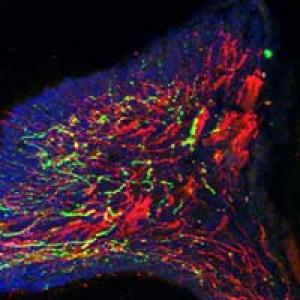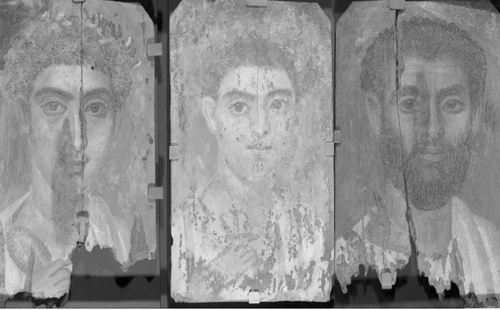高中英语40篇背诵课文_高中英语值得背诵的英语文章(7)
第二十二篇:The Happy Door 快乐之门
Happiness is like a pebble dropped into a pool to set in motion an ever-widening circle of ripples. As Stevenson has said, being happy is a duty.
There is no exact definition of the word happiness. Happy people are happy for all sorts of reasons. The key is not wealth or physical well-being, since we find beggars, invalids and so-called failures, who are extremely happy.
Being happy is a sort of unexpected dividend. But staying happy is an accomplishment, a triumph of soul and character. It is not selfish to strive for it. It is, indeed, a duty to ourselves and others.
Being unhappy is like an infectious disease. It causes people to shrink away from the sufferer. He soon finds himself alone, miserable and embittered. There is, however, a cure so simple as to seem, at first glance, ridiculous; if you don’t feel happy, pretend to be!
It works. Before long you will find that instead of repelling people, you attract them. You discover how deeply rewarding it is to be the center of wider and wider circles of good will.
Then the make-believe becomes a reality. You possess the secret of peace of mind, and can forget yourself in being of service to others.
Being happy, once it is realized as a duty and established as a habit, opens doors into unimaginable gardens thronged with grateful friends.
第二十三篇:Born to Win 生而为赢
Each human being is born as something new, something that never existed before. Each is born with the capacity to win at life. Each person has a unique way of seeing, hearing, touching, tasting and thinking. Each has his or her own unique potentials---capabilities and limitations. Each can be a significant, thinking, aware, and creative being---a productive person, a winner.
The word “winner” and “loser” have many meanings. When we refer to a person as a winner, we do not mean one who makes someone else lose. To us, a winner is one who responds authentically by being credible, trustworthy, responsive, and genuine, both as an individual and as a member of a society.
Winners do not dedicated their lives to a concept of what they imagine they should be; rather, they are themselves and as such do not use their energy putting on a performance, maintaining pretence and manipulating others. They are aware that there is a difference between being loving and acting loving, between being stupid and acting stupid, between being knowledgeable and acting knowledgeable. Winners do not need to hide behind a mask.
Winners are not afraid to do their own thinking and to use their own knowledge. They can separate facts from opinions and don’t pretend to have all the answers. They listen to others, evaluate what they say, but come to their own conclusions. Although winners can admire and respect other people, they are not totally defined, demolished, bound, or awed by them.
Winners do not play “helpless”, nor do they play the blaming game. Instead, they assume responsibility for their own lives. They don’t give others a false authority over them. Winners are their own bosses and know it.
A winner’s timing is right. Winners respond appropriately to the situation. Their responses are related to the message sent and preserve the significance, worth, well-being, and dignity of the people involved. Winners know that for everything there is a season and for every activity a time.
Although winners can freely enjoy themselves, they can also postpone enjoyment, can discipline themselves in the present to enhance their enjoyment in the future. Winners are not afraid to go after what he wants, but they do so in proper ways. Winners do not get their security by controlling others. They do not set themselves up to lose.
A winner cares about the world and its peoples. A winner is not isolated from the general problems of society, but is concerned, compassionate, and committed to improving the quality of life. Even in the face of national and international adversity, a winner’s self-image is not one of a powerless individual. A winner works to make the world a better place.
第二十四篇:Work and Pleasure 工作和娱乐
To be really happy and really safe, one ought to have at least two or three hobbies, and they must all be real. It is no use starting late in life to say: “I will take an interest in this or that.” Such an attempt only aggravates the strain of mental effort. A man may acquire great knowledge of topics unconnected with his daily work, and yet hardly get any benefit or relief. It is no use doing what you like; you have got to like what you do. Broadly speaking, human being may be divided into three classes: those who are toiled to death, those who are worried to death, and those who are bored to death. It is no use offering the manual laborer, tired out with a hard week’s sweat and effort, the chance of playing a game of football or baseball on Saturday afternoon. It is no use inviting the politician or the professional or business man, who has been working or worrying about serious things for six days, to work or worry about trifling things at the weekend.
It may also be said that rational, industrious, useful human beings are divided into two classes: first, those whose work is work and whose pleasure is pleasure; and secondly, those whose work and pleasure are one. Of these the former are the majority. They have their compensations. The long hours in the office or the factory bring with them as their reward, not only the means of sustenance, but a keen appetite for pleasure even in its simplest and most modest forms. But Fortune’s favored children belong to the second class. Their life is a natural harmony. For them the working hours are never long enough. Each day is a holiday, and ordinary holidays when they come are grudged as enforced interruptions in an absorbing vacation. Yet to both classes the need of an alternative outlook, of a change of atmosphere, of a diversion of effort, is essential. Indeed, it may well be that those whose work is their pleasure are those who most need the means of banishing it at intervals from their minds.
第二十五篇:Mirror, Mirror--What do I see镜子,镜子,告诉我
A loving person lives in a loving world. A hostile person lives in a hostile world. Everyone you meet is your mirror.
Mirrors have a very particular function. They reflect the image in front of them. Just as a physical mirror serves as the vehicle to reflection, so do all of the people in our lives.
When we see something beautiful such as a flower garden, that garden serves as a reflection. In order to see the beauty in front of us, we must be able to see the beauty inside of ourselves. When we love someone, it’s a reflection of loving ourselves. When we love someone, it’s a reflection of loving ourselves. We have often heard things like “I love how I am when I’m with that person.” That simply translates into “I’m able to love me when I love that other person.” Oftentimes, when we meet someone new, we feel as though we “click”. Sometimes it’s as if we’ve known each other for a long time. That feeling can come from sharing similarities.
Just as the “mirror” or other person can be a positive reflection, it is more likely that we’ll notice it when it has a negative connotation. For example, it’s easy to remember times when we have met someone we’re not particularly crazy about. We may have some criticism in our mind about the person. This is especially true when we get to know someone with whom we would rather spend less time.
Frequently, when we dislike qualities in other people, ironically, it’s usually the mirror that’s speaking to us.
I began questioning myself further each time I encountered someone that I didn’t particularly like. Each time, I asked myself, “What is it about that person that I don’t like?” and then “Is there something similar in me?” in every instance, I could see a piece of that quality in me, and sometimes I had to really get very introspective. So what did that mean?
It means that just as I can get annoyed or disturbed when I notice that aspect in someone else, I better reexamine my qualities and consider making some changes. Even if I’m not willing to make a drastic change, at least I consider how I might modify some of the things that I’m doing.
At times we meet someone new and feel distant, disconnected, or disgusted. Although we don’t want to believe it, and it’s not easy or desirable to look further, it can be a great learning lesson to figure out what part of the person is being reflected in you. It’s simply just another way to create more self-awareness.
第二十六篇:On Motes and Beams 微尘与栋梁
It is curious that our own offenses should seem so much less heinous than the offenses of others. I suppose the reason is that we know all the circumstances that have occasioned them and so manage to excuse in ourselves what we cannot excuse in others. We turn our attention away from our own defects, and when we are forced by untoward events to consider them, find it easy to condone them. For all I know we are right to do this; they are part of us and we must accept the good and bad in ourselves together.
But when we come to judge others, it is not by ourselves as we really are that we judge them, but by an image that we have formed of ourselves fro which we have left out everything that offends our vanity or would discredit us in the eyes of the world. To take a trivial instance: how scornful we are when we catch someone out telling a lie; but who can say that he has never told not one, but a hundred?
There is not much to choose between men. They are all a hotchpotch of greatness and littleness, of virtue and vice, of nobility and baseness. Some have more strength of character, or more opportunity, and so in one direction or another give their instincts freer play, but potentially they are the same. For my part, I do not think I am any better or any worse than most people, but I know that if I set down every action in my life and every thought that has crossed my mind, the world would consider me a monster of depravity. The knowledge that these reveries are common to all men should inspire one with tolerance to oneself as well as to others. It is well also if they enable us to look upon our fellows, even the most eminent and respectable, with humor, and if they lead us to take ourselves not too seriously.
第二十七篇:An October Sunrise 十月的日出
I was up the next morning be fore the October sunrise, and away through the wild and the woodland. The rising of the sun was noble in the cold and warmth of it peeping down the spread of light, he raised his shoulder heavily over the edge of grey mountain and wavering length of upland. Beneath his gaze the dew-fogs dipped, and crept to crept to the hollow places; then stole away in line and column, holding skirts, and clinging subtly at the sheltering corners where rock hung over grassland, while the brave lines of the hills came forth, one beyond other gliding.
The woods arose in folds, like drapery of awakened mountains, stately with a depth of awe, and memory of the tempests. Autumn’s mellow hand was upon them, as they owned already, touched with gold and red and olive, and their joy towards the sun was less to a bridegroom than a father.
Yet before the floating impress of the woods could clear it self, suddenly the gladsome light leaped over hill and valley, casting amber, blue, and purple, and a tint of rich red rose; according to the scene they lit on, and the curtain flung around; yet all alike dispelling fear and the cloven hoof of darkness, all on the wings of hope advancing, and proclaiming, “God is here!” then life and joy sprang reassured from every crouching hollow; every flower, and bud and bird had a fluttering sense of them; and all the flashing of God’s gaze merged into soft beneficence.
So, perhaps, shall break upon us that eternal morning, when crag and chasm shall be no more, neither hill and valley, nor great unvintaged ocean; but all things shall arise, and shine in the light of the Father’s countenance, because itself is risen.
第二十八篇:To Be or Not to Be 生存还是毁灭
Outside the Bible, these six words are the most famous in all the literature of the world. They were spoken by Hamlet when he was thinking aloud, and they are the most famous words in Shakespeare because Hamlet was speaking not only for himself but also for every thinking man and woman. To be or not to be, to live or not to live, to live richly and abundantly and eagerly, or to live dully and meanly and scarcely. A philosopher once wanted to know whether he was alive or not, which is a good question for everyone to put to himself occasionally. He answered it by saying: "I think, therefore am."
But the best definition of existence ever saw did another philosopher who said: "To be is to be in relations." If this true, then the more relations a living thing has, the more it is alive. To live abundantly means simply to increase the range and intensity of our relations. Unfortunately we are so constituted that we get to love our routine. But apart from our regular occupation how much are we alive? If you are interest-ed only in your regular occupation, you are alive only to that extent. So far as other things are concerned--poetry and prose, music, pictures, sports, unselfish friendships, politics, international affairs--you are dead.
Contrariwise, it is true that every time you acquire a new interest--even more, a new accomplishment--you increase your power of life. No one who is deeply interested in a large variety of subjects can remain unhappy; the real pessimist is the person who has lost interest.
Bacon said that a man dies as often as he loses a friend. But we gain new life by contacts, new friends. What is supremely true of living objects is only less true of ideas, which are also alive. Where your thoughts are, there will your live be also. If your thoughts are confined only to your business, only to your physical welfare, only to the narrow circle of the town in which you live, then you live in a narrow cir-conscribed life. But if you are interested in what is going on in China, then you are living in China~ if you’re interested in the characters of a good novel, then you are living with those highly interesting people, if you listen intently to fine music, you are away from your immediate surroundings and living in a world of passion and imagination.
To be or not to be--to live intensely and richly, merely to exist, that depends on ourselves. Let widen and intensify our relations. While we live, let live!
第二十九篇:Gettysburg Address 葛底斯堡演说
Fourscore and seven years ago, our fathers brought forth upon this continent a new nation, conceived in liberty and dedicated to the proposition that all men are created equal.
Now, we are engaged in a great civil war, testing whether that nation or any nation so conceived and so dedicated, can long endure. We are met on a great battlefield of that war. We have come to dedicate a portion of that field as a final resting-place for those who here gave their lives that that nation might live. It is altogether fitting and proper that we should do this.
But, in a larger sense, we cannot dedicate, we cannot consecrate, we cannot hallow this ground. The brave men, living and dead, who struggled here, have consecrated it far above our poor power to add or detract. The world will little note nor long remember what we say here, but it can never forget what they did here. It is for us, the living, rather, to be dedicated here to the unfinished work which they who fought here have thus far so nobly advanced. It is rather for us to be here dedicated to the great task remaining before us---that from these honored dead we take increased devotion to that cause for which they gave the last full measure of devotion; that we here highly resolve that these dead shall not have died in vain; that this nation, under God, shall have a new birth of freedom; and that government of the people, by the people, and for the people, shall not perish from the earth.
第三十篇:First Inaugural Address(Excerpts) 就职演讲(节选)
We observe today not a victory of party, but a celebration of freedom, symbolizing an end, as well as a beginning; signifying renewal, as well as change. For I have sworn before you and Almighty God the same solemn oath our forebears prescribed nearly a century and three quarters ago.
In your hands, my fellow citizens, more than in mine, will rest the final success or failure of our course. Since this country was founded, each generation of Americans has been summoned to give testimony to its national loyalty. The graves of young Americans who answered the call to service surround the globe.
Now the trumpet summons us again, not as a call to bear arms, though arms we need; not as a call to battle, though embattled we are; but a call to bear the burden of a long twilight struggle, year in and year out, “rejoicing in hope; patient in tribulation”, a struggle against the common enemies of man: tyranny, poverty, disease, and war itself.
Can we forge against these enemies a grand and global alliance, North and South, East and West, that can assure a more fruitful life for all mankind? Will you join in that historic effort?
In the long history of the world, only a few generations have been granted the role of defending freedom in its hour of maximum danger. I do not shrink from this responsibility. I welcome it. I do not believe that any of us would exchange places with any other people or any other generation. The energy, the faith, the devotion which we bring to this endeavor will light our country and all who serve it. And the glow from that fire can truly light the world.
And so, my fellow Americans, ask not what your country can do for you, ask what you can do for your country.
My fellow citizens of the world, ask not what America will do for you, but what together we can do for the freedom of man.
Finally, whether you are citizens of America or citizens of the world, ask of us here the same high standards of strength and sacrifice which we ask of you. With a good conscience our only sure reward, with history the final judge of our deeds, let us go forth to lead the land we love, asking His blessing and His help, but knowing that here on earth, God’s work must truly be our own.



![[神奇小蜘蛛]研究发现神奇蜘蛛丝如何制造](http://img.zxxk.com/2015-10/ZXXKCOM201510101004546258581.jpg)

